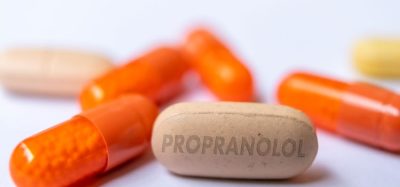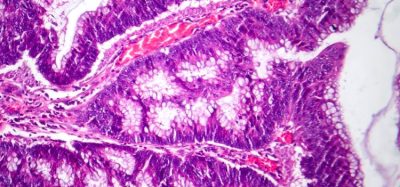Eli Lilly ulcerative colitis antibody drug doubles remission rates
Posted: 29 June 2023 | Catherine Eckford (European Pharmaceutical Review) | No comments yet
Mirikizumab, the first therapeutic antibody tested for blocking interleukin-23 in ulcerative colitis has demonstrated strong efficacy in two Phase III trials.


New drug mirikizumab doubled remission rates up to 50 percent in certain patient groups in two ulcerative colitis (UC) Phase III trials. Results from the studies were recently published in the New England Journal of Medicine.
Researchers identified Interleukin-23 as an important protein in triggering and maintaining gut inflammation. This is relevant in Crohn’s disease, ulcerative colitis and chronic skin disease psoriasis. Previous research has shown that blocking interleukin-23 with specific therapeutic antibodies is very effective in psoriasis and Crohn’s disease. Mirikizumab is the first such antibody tested for ulcerative colitis.
On 28 June 2023, the Medicines and Healthcare products Regulatory Agency (MHRA) granted marketing authorisation for mirikizumab (OMVOH®) for adults with moderately to severely active UC who have had an inadequate response with, lost response to, or were intolerant to either conventional therapy or a biologic treatment. It is the first IL-23p19 antagonist to be authorised in Great Britain for this indication.
LUCENT-1 and LUCENT-2 Phase III clinical trials
The Phase III clinical trials assessed the safety and efficacy of mirikizumab compared to placebo in 1,281 adult ulcerative colitis patients with moderate to severe inflammation.
In LUCENT-1, patients received 300mg mirikizumab or placebo (in a 3:1 ratio) through an infusion every four weeks for 12 weeks in total.
If patients responded to the biologic drug mirikizumab in these 12 weeks (544 out of 1281 patients), these individuals continued in the LUCENT-2 study. A dose of 200mg mirikizumab or placebo (in a 2:1 ratio) was administered via an injection every four weeks for 40 additional weeks.
How effective was mirikizumab?
Patients given the anti-IL-23 monoclonal antibody mirikizumab were more likely to achieve clinical remission at both the end of the LUCENT-1 and LUCENT-2 compared to placebo treatment. Results observed in LUCENT-1 showed this as 24.2 percent versus 13.3 percent. In LUCENT-2, this was 49.9 percent versus 25.1 percent.
Those who received mirikizumab also had higher clinical response, endoscopic remission, and less bowel movement urgency. Mirikizumab treatment appeared to be safe. Adverse events were not more common with mirikizumab than with placebo treatment.
By combining these results, “mirkizumab is an effective drug for those patients with moderately severe and severe forms of ulcerative colitis. We hope that it will be available as a treatment option in Europe this year,” shared Geert D’Haens, lead author and Professor of Gastroenterology at Amsterdam UMC.
“There is still a high unmet need for safe and effective treatments for ulcerative colitis. This new medicine meets this need for an important proportion of patients,” stated D’Haens.
Eli Lilly and Company funded the studies and developed the monoclonal antibody drug mirikizumab.
Related topics
Antibodies, Big Pharma, Biologics, Biopharmaceuticals, Clinical Development, Clinical Trials, Data Analysis, Dosage, Drug Development, Research & Development (R&D), Therapeutics
Related organisations
Amsterdam UMC, Eli Lilly and Company, Medicines and Healthcare Products Regulatory Agency (MHRA)









